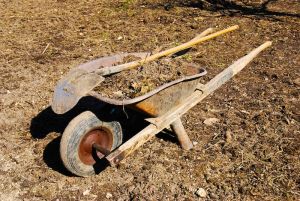On April 17, the fertilizer plant owned by West Fertilizer Company exploded in a fiery ball of flames. The plant was destroyed, along with 75 homes nearby, which were also demolished by the force of the blast. A nursing home, an apartment complex and a nearby school were also damaged. The property loss, however, was not the worst consequence of the accident. At least 14 people were killed, including a plant employee and several firefighters. Hundreds more sustained serious injury. 
Following the deadly explosion, many questions were raised about just how such a tragedy could have occurred. Our Boston industrial accident attorneys know there are strict regulations in place for fertilizer plants to ensure that the plants are safe and the risk of explosion is minimized. However, as the New York Times pointed out in a recent article, this fertilizer plant fell through the cracks of regulatory oversight with devastating consequences.
Absence of Oversight Leads to Deadly Explosion
Fertilizer plants are inherently dangerous places. Fertilizer is largely made up of ammonium nitrate, a nitrogen-rich chemical that resembles table salt and that is popular with farmers for fertilizing crops. Unfortunately, ammonium nitrate is extremely combustible. In fact, Timothy McVeigh used ammonium nitrate in the Oklahoma City bombing that took place in 1995.
The West Fertilizer Company plant had this ammonium nitrate present in the plant and it was the ammonium nitrate that caused the serious explosion to occur. However, although more than a week has passed since the explosion, the New York Times points out that investigators did not know how much ammonium nitrate had been stored at the plant nor whether the nitrate had been stored in a safe manner. While there is supposed to be some regulation of ammonium nitrate, it also remains unclear which state, federal or local agencies may have been informed of the presence of the ammonium nitrate.
With the government agencies unsure of who was supposed to be regulating the plant, it is pretty clear that no one was actually monitoring it. Thus, although there were laws on the local level, the state level and the federal level to ensure safety, no one was enforcing those laws and the plant owners were likely not living up to them. As one federal official quoted in the Times said: “The whole thing may have fallen through a number of regulatory cracks.”
The fact that a dangerous fertilizer plant with an explosive chemical fell through the cracks is something that should be worrying to every consumer and every business owner alike. If even this dangerous business with highly explosive materials could fall through the cracks, there is no telling how many other potential dangerous worksites are out there just waiting for something to go wrong.
A lack of regulatory oversight and guidance could lead to another disaster, like the explosion in West Texas. A failure to enforce safety laws could also do damage on a smaller but no less severe scale as individual workers at dangerous workplaces throughout the country fall victim to injury due to unsafe working conditions.
Avoiding this unfortunate fate is essential. Not only should government authorities vow to do better when it comes to enforcing regulations in the future, but employers should also take it upon themselves to ensure that they are not putting their workers or the community at large in a dangerous situation.
If you or a loved one was involved in a work accident in Massachusetts, call Jeffrey Glassman Injury Lawyers for a free and confidential appointment — (617) 777-7777.
Additional Resources
Raising Awareness of Fall Accidents in Boston and Elsewhere, Boston Personal Injury Attorney Blog, June 21, 2011.
 Massachusetts Workers Compensation Lawyers Blog
Massachusetts Workers Compensation Lawyers Blog

